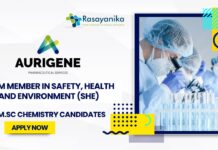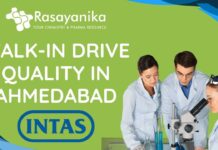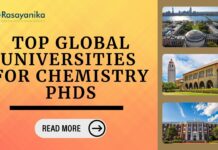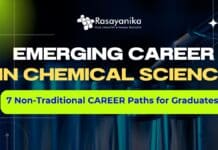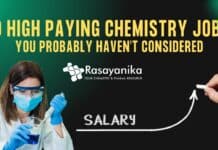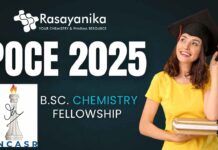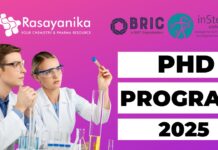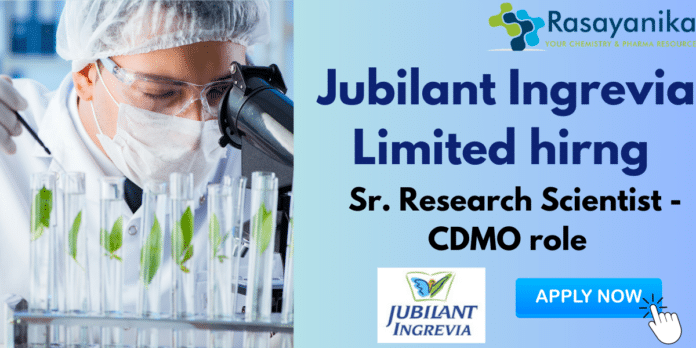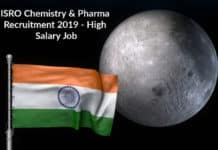Sr. Research Scientist – CDMO role at Jubilant Ingrevia Limited – APPLY NOW
Organization : Jubilant Ingrevia Limited
Role : Sr. Research Scientist – CDMO
Location : Greater Noida
Educational qualification : PhD / MSc organic chemistry
Job Summary
Key Responsibilities :
- To develop Pharma / Agro Intermediate molecules, Knowledge of Multi step synthesis,
- Exposure in Diketene chemistry, GLP, sample preparation and impurity isolation and characterization. Literature search, Effluent minimization, Catalyst & Solvent Recylability study, MOC study etc.
- Literature search and Route scouting. Process developement gm scale, Scale up and support to plant and commercialization. Technology Package preparation, Synthesis of
- Impurities and isolation. MOC, effluent studies and Economization.
- Synthesis of specialty Chemicals, Pharma & Agro Intermediates and Heterocyclic compounds.
- Good understanding for Industrial feasibility, Multi steps Synthesis, Diketene chemistry, impurity characterization and data interpretation.
- Having exposure of pressure reaction, Skilled in Piloting and commissioning.
- Halogenation – Chlorination, Fluorination, Halex reaction and Bromination, Complex chemistries like Grignard, Lithiation, Cyclization, condensation, Elimination, Reduction etc. Vapor phase and contiuous process development Exposure. Communication and coordination skill.
Qualifications & Experience :
- PhD / MSc organic chemistry with 6 to 8 yrs of Exp.
- Personal Characteristics
- Good communication skills
- Presentation Skills
- Analytical thinking
check out Rasayanika for more updates !
Here are some interview questions and possible answers for the Sr. Research Scientist – CDMO role at Jubilant Ingrevia Limited:
- Can you briefly describe your experience in developing Pharma and Agro intermediate molecules?
Answer: Certainly. I have 6 to 8 years of experience in the field of organic chemistry, specializing in the development of Pharma and Agro intermediate molecules. I have been involved in multi-step synthesis, route scouting, and process development from gm scale to commercialization. Additionally, I have expertise in Diketene chemistry, impurity isolation, and characterization.
- How do you stay updated with the latest developments in organic chemistry and related fields?
Answer: To stay updated with the latest developments, I regularly conduct literature searches in reputable scientific journals and attend conferences and workshops related to organic chemistry and chemical process development. I believe continuous learning and networking with peers in the industry are crucial for keeping abreast of advancements.
- Can you share an example of a challenging project you worked on, and how you successfully overcame the challenges?
Answer: Sure. In one project, I was tasked with developing a complex heterocyclic compound with a stringent timeline for commercialization. The synthesis required several challenging steps and had impurity-related issues. To overcome the challenges, I collaborated closely with cross-functional teams, conducted in-depth literature searches, and optimized reaction conditions. Additionally, I implemented GLP practices to ensure the quality and reproducibility of the results, which ultimately led to the successful development and commercialization of the compound.
- How do you approach effluent minimization and environmentally friendly practices in your work?
Answer: Environmental responsibility is crucial in chemical process development. I prioritize effluent minimization by evaluating and optimizing reaction conditions to reduce waste generation. Additionally, I focus on recycling catalysts and solvents wherever possible to minimize environmental impact. Moreover, I conduct MOC (Material of Construction) studies to ensure that equipment used in the process is compatible with the chemicals and doesn’t contribute to contamination.
- Describe your experience in piloting and commissioning processes for chemical reactions.
Answer: I have significant experience in piloting and commissioning chemical reactions. During piloting, I scale up processes from laboratory to larger setups to evaluate their feasibility for commercial production. It involves thorough process optimization and ensuring the safe handling of reactions at larger scales. I work closely with the operations team during commissioning to address any technical challenges and ensure a smooth transition from the lab-scale to the plant-scale operation.
- How do you handle complex chemistries, such as Grignard, Lithiation, Cyclization, etc.?
Answer: Handling complex chemistries requires a methodical approach. I start by thoroughly understanding the reaction mechanisms and potential hazards associated with each step. I conduct extensive literature reviews to identify the best practices and safety measures. Additionally, I use in-situ monitoring techniques and control parameters to ensure the reactions proceed smoothly and safely. I’m also well-versed in reaction quenching techniques to manage exothermic reactions effectively.
ALL THE BEST !
check out rasayanika for more updates








